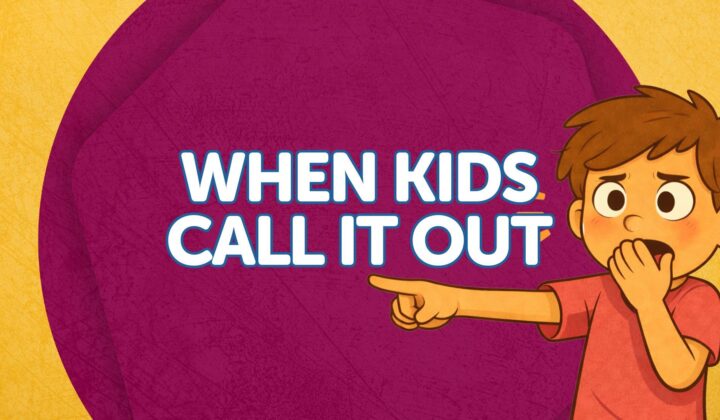Learn more about the journey that led to us equipping kids to carefully evaluate every idea they encounter.
Meet members of our team who have contributed to curriculum development.
Hear from real users of the Foundation Curriculum.
Learn what we believe about God, Jesus, Scripture, and more.
How To Teach Kids That The Resurrection Is Historically Reliable
All of Christianity hangs on the resurrection of Jesus.
In this blog post, I’ll begin to explain why I wholeheartedly believe that Jesus rose from the grave. If you found my blog you might be someone who already believes in the historical reliability and awesome truth of the resurrection. However, if you’re not sure about the reliability of Jesus’ resurrection, it’s my hope that you will at least be on your way to discover that the evidence of the resurrection is convincing. Please watch our free Webinar: “How to Show Kids the Historical Reliability of the Resurrection) to get an even fuller understanding about this topic.
Contents:
Practical Live Webinars
Watch live webinars with Elizabeth Urbanowicz to get equipped so you can help your kids think critically and biblically.
Why Is the Resurrection So Important For Kids?
The resurrection is not only significant for kids to grasp, but also for every Christian adult. Why is this topic so important for both kids and adults? Because if the resurrection did happen, then Christianity is true. And conversely, if the resurrection did not happen then Christianity is false.
In the words of apostle Paul,
And if Christ has not been raised, your faith is futile and you are still in your sins. Then those also who have fallen asleep in Christ have perished. If in Christ we have hope in this life only, we are of all people most to be pitied. (1 Corinthians 15:17-19, ESV)
Did you catch that? As Christians we of all people are to be most pitied if in fact Jesus did not rise from the grave, because Christianity is false and are wasting our time.
Do our children understand that the truth of Christianity is rooted in the objective claim that Jesus rose from the grave? Can kids make the connection that their subjective and personal experience with Jesus Christ is rooted in an objective truth?
Our kids need to understand that Christianity hangs on the claim that Jesus rose from the grave.
How Do You Explain The Resurrection To A Child?
The first thing I like to do when explaining the resurrection to children is to go through the 1 Corinthians 15:17-19 passage. Have kids read through and ask what Paul is saying - that if Jesus did not rise from the grave, then Christianity is of no value. This way they can see that the Bible itself claims that our faith totally depends on the truth of the resurrection.
Investigation Case: A Creative Way To Teach The Resurrection
Next, I like to set up an investigation for kids because looking at the historical reliability of the resurrection is similar to being a cold-case detective.
Resurrection Detective Activity:
Place a Glass of water on a table (determine the amount you want beforehand), then knock the glass over when no kids are around.
Bring the kids back and note that the glass of water was knocked over - ask what happened, was anybody here, etc? This is your chance to put on your detective hats with your kids.
List the facts: Grab a pen and notepad and list what you know is true about the room - e.g., no family members were in fact here. Is anything strange or out of place?
List possible theories: What are some theories of what might have happened, e.g., maybe someone broke into the house and knocked over the glass.
Connect
Facts
Theories
Apply Cold-Case Investigation To The Resurrection
Connect the fact-gathering and theory exploring exercises from the cold-case activity to the resurrection. What are the facts and the possible theories that can explain the facts of the resurrection?
The Minimal Facts Approach
This was methodology first introduced by Dr. Gary Habermas from Liberty University. He looks at data regarding the resurrection that is so strongly attested historically, that every scholar would agree that these are facts even if they don’t all agree that Jesus rose from the grave. They can all agree to these minimal facts. There are usually four minimal facts, but the following three are the easiest for kids to understand:
Jesus Died On The Cross
The Tomb Was Empty
Jesus’ Followers Claimed To Have Seen Jesus Resurrected
What are the theories that might explain the resurrection?
Swoon Theory - he appeared that he was dead, but was revived and somehow left the tomb to claim that he resurrected
Stolen Body/Conspiracy Theory - we even see this in Scripture - a claim that the disciples stole the body.
Hallucination Theory - Jesus’ followers hallucinated because of their grief-stricken state.
The Resurrection Theory- The disciples actually saw the risen Jesus. What the disciples saw and claimed was in fact true.
Separate The Possible Theories From The Reasonable Theories
Finally, you can use this as an opportunity to discuss which theories actually account for the facts and data that we have just like we did with the glass water activity. When we look at the facts and evidence, we see that the theory of the resurrection is the most plausible and reasonable explanation than any other theory about this subject.
Conclusion
This short post and an hour-long webinar is limited in scope and depth. If you want more details, you can read a CrossExamined.org article about the minimal facts approach and explore the theories about the resurrection in much more depth.
Impact 360 Institute video explains: Did Jesus actually rise from the grave?
Lastly, use our Cold-Case Christianity for Kids Book discussion guide and don’t forget to join our book club.
Looking for a Supplemental Homeschool Curriculum?
Foundation's Curriculums supplement your child's homeschool experience with worldview and apologetics training.

About Elizabeth Urbanowicz
Elizabeth Urbanowicz is a follower of Jesus who is passionate about equipping kids to understand the truth of the Christian worldview. Elizabeth holds a B.S. in Elementary Education from Gordon College, an M.S.Ed. in Education from Northern Illinois University, and an M.A. in Christian Apologetics from Biola University. Elizabeth spent the first decade of her professional career teaching elementary students at a Christian school. Elizabeth now works full time on developing comparative worldview and apologetics resources for children. Her goal is to prepare the next generation to be lifelong critical thinkers and, most importantly, lifelong disciples of Jesus.
Related Posts and insights

Helping Your Child Understand That Love Is a Choice, Not Just a Feeling
Is love just a feeling? Learn how to teach your child that biblical love is a choice using 1 Corinthians 13, with practical weekly tips for every age group.

How to Help Your Child Through Hard Circumstances
Learn five biblical steps to walk your child through suffering and hard circumstances—from demonstrating compassion to helping them look beyond themselves.

Teaching Kids How to Respond to Sin Biblically
Help your child respond to bad behavior they see in public without feeling superior. Learn a 3-step biblical framework for loving others without affirming sin.
